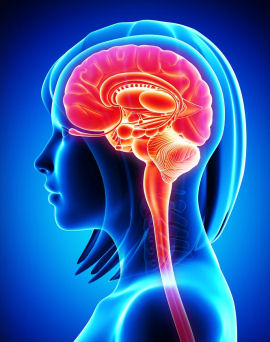28 May 2013
Evidence that probiotics alter brain function
by Will Parker
 In a discovery that carries significant implications for changing brain function through dietary interventions, UCLA researchers say they now have the first evidence that bacteria ingested in food can affect how the human brain works. The study, which focused on women who consumed yogurt containing the bacteria known as probiotics, appears in the journal Gastroenterology.
In a discovery that carries significant implications for changing brain function through dietary interventions, UCLA researchers say they now have the first evidence that bacteria ingested in food can affect how the human brain works. The study, which focused on women who consumed yogurt containing the bacteria known as probiotics, appears in the journal Gastroenterology.
Researchers have long known that the brain sends signals to the gut, which is why stress and other emotions can contribute to gastrointestinal symptoms. This new study claims to show that signals travel the opposite way as well. "Our findings indicate that some of the contents of yogurt may actually change the way our brain responds to the environment. When we consider the implications of this work, the old sayings 'you are what you eat' and 'gut feelings' take on new meaning," said Dr. Kirsten Tillisch, lead author of the study.
The study involved 36 women between the ages of 18 and 55 who were divided into three groups: one group ate a specific yogurt containing a mix of several probiotics twice a day for four weeks; another group consumed a dairy product that looked and tasted like the yogurt but contained no probiotics; and a third group ate no product at all.
MRI scans conducted both before and after the four-week study period looked at the women's brains in a state of rest and in response to an emotion-recognition task in which they viewed a series of pictures of people with angry or frightened faces and matched them to other faces showing the same emotions. This task was used to measure the engagement of affective and cognitive brain regions in response to a visual stimulus.
The researchers found that the women who consumed the probiotic yogurt showed a decrease in activity in both the insula - which processes and integrates internal body sensations, like those from the gut - and the somatosensory cortex during the emotional reactivity task.
Tillisch said she was surprised to find that these effects could also be seen in other sensory- and cognition-related brain areas. The women in the other two non-probiotic groups showed stable or increased activity in these networks.
During the resting brain scan part of the experiment, the women consuming probiotics showed greater connectivity between a key brainstem region known as the periaqueductal grey and cognition-associated areas of the prefrontal cortex. The women who ate no product at all, on the other hand, showed greater connectivity of the periaqueductal grey to emotion- and sensation-related regions, while the group consuming the non-probiotic dairy product showed results in between.
The knowledge that signals are sent from the intestine to the brain and that they can be modulated by a dietary change is likely to lead to an expansion of research aimed at finding new strategies to prevent or treat digestive, mental, and neurological disorders.
By demonstrating the brain effects of probiotics, the study also raises the question of whether repeated courses of antibiotics can affect the brain, as some have speculated. Antibiotics are used extensively in neonatal intensive care units and in childhood respiratory tract infections, and such suppression of the normal microbiota may have long-term consequences on brain development.
"Time and time again, we hear from patients that they never felt depressed or anxious until they started experiencing problems with their gut," Tillisch said. "Our study shows that the gut-brain connection is a two-way street."
Related:
Discuss this article in our forum
Modified gut flora could end malnutrition
Tackling obesity by manipulating gut flora
Infant formula found to compromise immune system
Hygiene Hypothesis linked to depression
Source: University of California - Los Angeles Health Sciences
